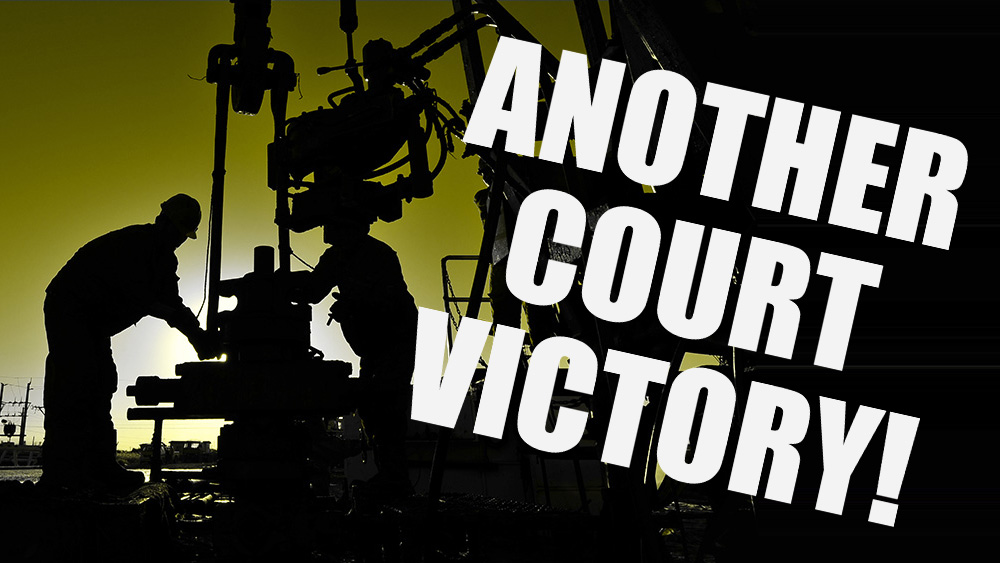- An Alliance For Community Action
- (970) 256-7650
- info@WesternColoradoAlliance.org
Denver Court dismisses Garfield County lawsuit to overturn clean air rules
Denver District Court Judge Martin Foster Egelhoff today granted a motion by the state of Colorado to dismiss a lawsuit by Garfield County and a coalition of nine other counties that sought to overturn new air quality protections from oil and gas development.
Adopted by the state Air Quality Control Commission (AQCC) in December 2019, the rules being challenged were the first air quality rules adopted under Senate Bill 181, which mandates reductions in ozone-forming pollutants and methane emissions from oil and gas development. It is the second such suit from energy-producing counties to be dismissed in the last three weeks by Denver District Court. On July 29, a different judge in Denver District Court dismissed a similar lawsuit filed by Weld County on the grounds that the county did not have standing to sue the state.
Judge Egelhoff cited the earlier decision on the Weld County case, noting that Garfield County and its coalition “… will not suffer any direct harm or cost from compliance with the revised Regulation 7, and that the indirect and incidental impacts that may flow from subsequent business decisions of third parties are insufficient to confer standing.”
“The ruling today is a big win for public health, climate and common sense in Colorado, as well as for the state of Colorado’s right to protect its residents from the worst effects of oil and gas development. I urge the Garfield County Commissioners to stop spending their taxpayers money to defend the energy industry and start working to protect residents in Battlement Mesa and elsewhere who live with the impacts of natural gas wells all day every day,” said Western Colorado Alliance Executive Director Emily Hornback.
Seven conservation and community groups from across Colorado that were recently granted the right to intervene in defense of the AQCC and the state of Colorado in the Garfield County lawsuit cited the ruling as a win for public health and the climate. The seven groups that intervened on behalf of the state include Western Colorado Alliance, League of Oil & Gas Impacted Communities (LOGIC), Conservation Colorado, Earthworks, the Sierra Club, Citizens for a Healthy Community and the San Juan Citizens Alliance.
In particular, the Garfield County suit sought to overturn a new “proximity rule” that requires oil and gas companies to inspect their facilities more frequently within 1,000 feet of homes, playgrounds, schools and other occupied areas. That rule had be proposed by local community and conservation groups that work with impacted residents, including the Western Colorado Alliance which works in a number of West Slope counties, LOGIC which works with Front Range communities and Grand Valley Citizens Alliance based in Rifle.
Garfield County was the only jurisdiction among the ten named in the lawsuit that was paying any money for legal fees. So far the Garfield County Commissioners have allocated $1.5 million to fight the new rules both before the AQCC and Colorado Oil and Gas Conservation Commission, as well as in court.
Judge Egelhoff’s decision allows the new air quality protections to take effect statewide. It is a win for people who live near wells and other oil and gas infrastructure. Coloradans statewide will benefit from reduced ozone emissions. And the state will also remain a leader in lowering methane emissions, one of the most potent greenhouse gases.
Other conservation groups were also pleased by the decision.
“Today’s ruling is an important win for oil and gas impacted residents. The negative effects of oil and gas development on our air quality and the resulting health impacts demonstrate the clear need for rules that ensure accountability. The expenditures of Garfield County and other local governments to fight health and safety protections for their own residents have been dismaying. The courts ruling today is a win for all Coloradans who depend on clean air, and particularly for those who are directly impacted by oil and gas development,” said Sara Loflin, Executive Director at League of Oil and Gas Impacted Communities.
And Kelly Nordini, Executive Director of Conservation Colorado, said, “The climate-fueled wildfires raging throughout our state highlight our choice between business as usual and a future of clean air and climate action. Our hearts go out to the residents of Garfield County and across Colorado who are impacted by these fires. Today’s ruling brings Coloradans one step closer to the brighter future we all deserve. And, after Garfield County Commissioners chose to spend $1.5 million to try to stop clean air rules from taking effect, we look forward to working with residents and officials in that county to change course and build a future based on clean energy and outdoor recreation.”


